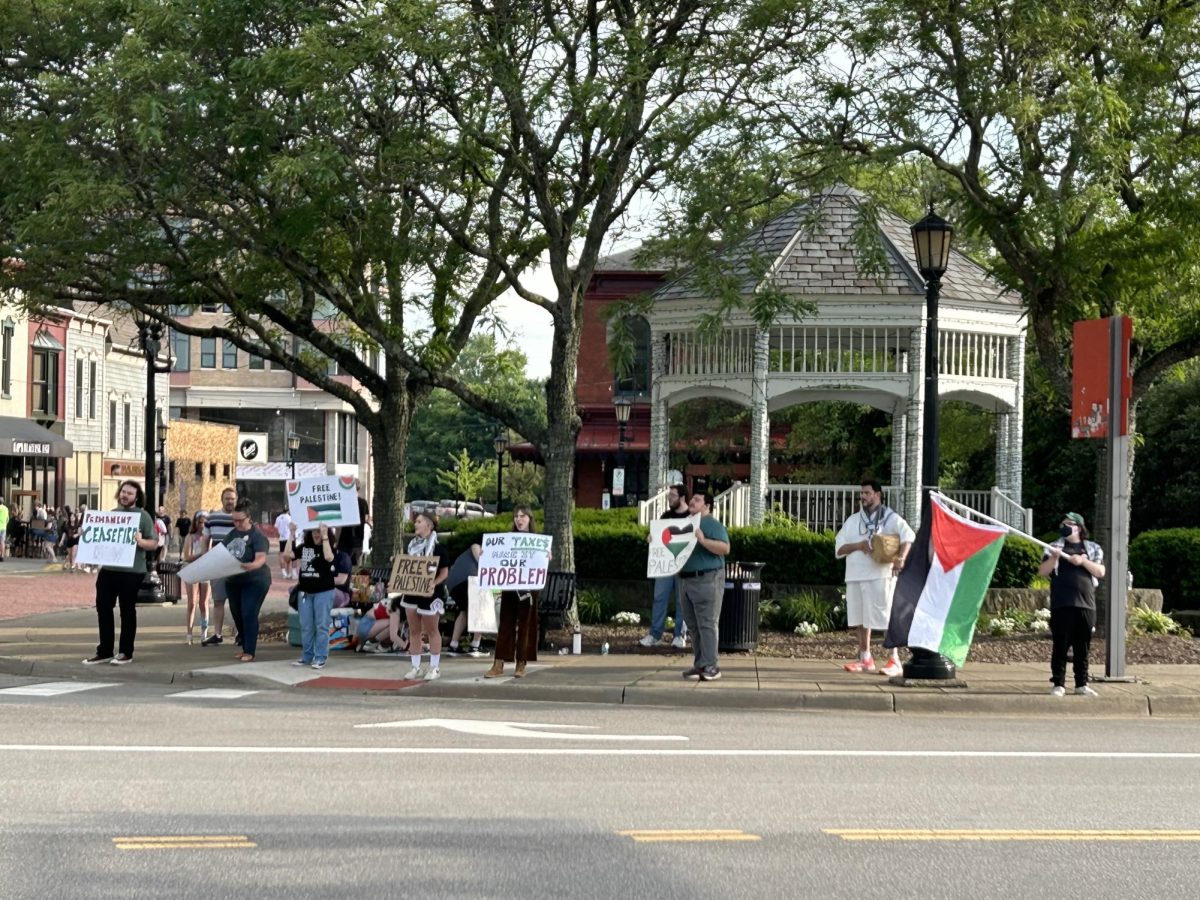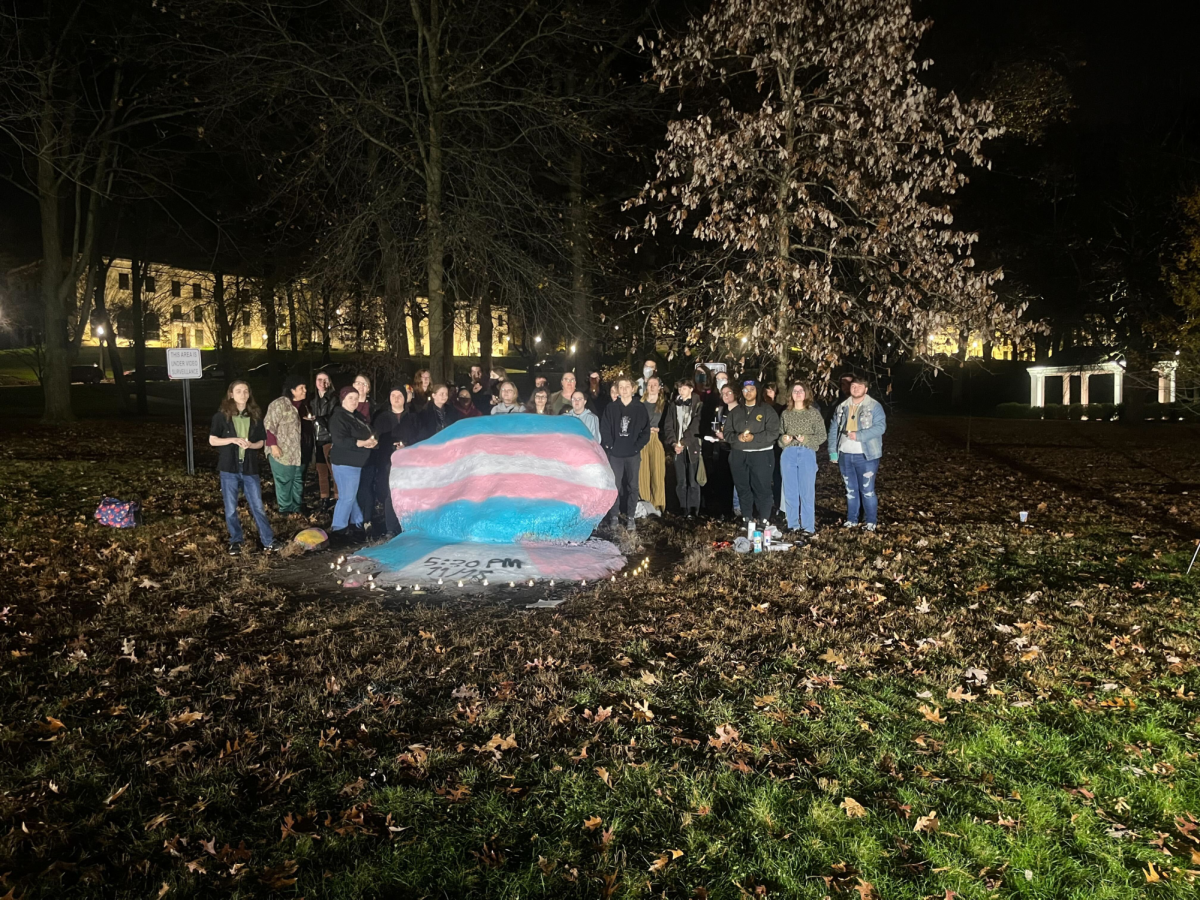The Ohio Legislature proposed House Bill 606, also known as the Campus Accountability and Modernization to Protect University Students Act, to provide Ohio universities with additional safety resources for student protests.
The proposal of the CAMPUS Act comes as universities issue safety guidances for the increased number of campus protests and encampments following the Israel-Hamas war.
If passed, the CAMPUS Act will require universities to train administration, faculty and staff on how to respond to hate incidents and will allow individuals to report those incidents anonymously.
Benjamin Kronenberg, a senior music education major and organizer of the Friends of Palestine Collective protests, said students’ safety has become at risk.
Rachel Felber, executive director of Hillel, a Jewish organization found on college campuses, said it is important for individuals to have access to reporting hate incidents, but also to create a safe space where individuals do not have to fear retaliation coming from their report.
Jewish students, she added, have expressed feeling vulnerable and unsafe on campus.
“[They] found that Hillel is one of, if not the only place which they can be who they truly are without having to hide a piece of them in order to be safe,” she said.
Kronenberg said they did not agree with the language of the bill because it focuses primarily on antisemitism compared to other forms of hate speech.
“[I] am very, very worried that this bill might give police, politicians, whoever, the power to send police, send security to pro-Palestine rallies under the guise of it being antisemitic,’’ they said.
Yazun Issawi, a junior computer information systems major and president of Students for Justice in Palestine, agreed that the CAMPUS Act emphasizes antisemitism more than other forms of discrimination mentioned in the bill.
“I feel that is inherently discriminating against other forms of discrimination,” he said. “I believe that if you want to protect a certain group, then you have to protect all of the groups.”
Because the CAMPUS Act was referred to the Ohio House Finance Committee and is still pending legislation, Eric Mansfield, the university’s assistant vice president for content strategy and communications, said the university had no comment.
The CAMPUS Act looks to strengthen the relationship between universities and local law enforcement. Felber said she hopes the bill will provide funding for organizations to have access to security from campus police and other law enforcement.
This past year, Hillel received emergency funding to secure the organization and its members, Felber said.
“Had we not received that funding, we would have had to think more strictly about the way our programs operated,” Felber said.
Kronenberg said the CAMPUS Act should include known repercussions for the police inciting violence and having a security system in place.
“I think that we can hope for a day when we call for help, we actually get help,” they said.
The CAMPUS Act would require universities to publicize information pertaining to protests like time, place and manner restrictions established by neutral criteria.
Issawi said these restrictions do not take into account protests that may occur on short notice like encampments. Because these are not considered, Issawi said he is unsure how law enforcement may respond.
“If anyone were to break these rules, it would give them a reason to use brute force to shut them down,” he said.
Although Issawi said he did not agree with all aspects of the proposed bill, he said its focus on protecting students’ rights and their safety is important to prioritize.
“I think this bill should only be put in place to protect that right to free speech and to protect these students from outside agitators,” he said.
If the CAMPUS Act is passed, Ohio universities will have to:
- Provide administration, faculty and staff with training on responding to hate incidents.
- Establish a procedure for investigating students’ reports on racial, religious or ethnic bias harassment or intimidation.
- Require the creation of a uniform reporting system on hate incidents.
- Submit an annual report of hate incidents to the chancellor, the attorney general and the United States attorneys for the northern and southern districts of Ohio.
- Organize a campus task force to combat forms of hate.
- Found a committee on how to combat hate by creating guidance on its prevention.
- Form a partnership between university police, local law enforcement and highway patrol to provide student groups facing threats with security.
- Publicize time, place and manner restrictions of protests.
Adriana Gasiewski is a reporter. Contact her at [email protected].












Jeffrey Rockland • Jun 19, 2024 at 4:54 pm
SJP is a radical group that supports terrorism. It should be removed from campus and stop receiving federal and state funding through the university. Trying to minimize the importance of combating antisemitism, at a time when this horrific form of hate is growing at an unprecedented rate, is proof of the intension of those quoted in this article and the article as a whole.
Islamophobia is a concept that came into focus after 9/11. Perhaps our readership is too young to remember what happened then or to know anything about ISIS, Osama Bin Laden, Al Qai’da, Boca Haram, and certainly they are too young to remember Yasser Arafat, the infamous leader of the PLO, predecessor of the more “moderate” Palestinian Authority, known to pay handsomely for “suicide” bombers (murderers) in the West Bank, as Hamas does in Gaza.
Certainly, I would never advocate for any biased treatment of any marginalized population, ever.
The issue we are facing as a world is that the very group that poses as a “resistance” group, and those who celebrated with SJP after October 7th, celebrate murder, rape, discrimination, racism, slavery, sexism and persecution of non-binary individuals. They do not want land or rights for Palestinians but are part of a greater mission for religious extremism that is intolerant and hateful of all and any who do not conform. SJP is an organization that directly endorses Hamas and is part of an international attempt to force a fascist religious extremist agenda. It has no place receiving funding from any institution that is focused on education and is grounded in democratic principles.
Let us join together and hope that the United States House Committee on Ways and Means takes serious action to eliminate the support of individual professors and student organizations intent on promoting and normalizing the hate of Israel and Jews.
In previous years, we have all joined together to support other marginalized populations on our campus. Since October 7th of last year, the silent reaction of Kent State to the horrific acts of terrorism against Israel and how SJP celebrated this on our own campus, still resonates.
How dare this article claim to be neutral reporting when it actually serves to validate the intentions of the current student leader of a hate organization.
Shame on Kent Wired!
Barry Dunietz • Jun 14, 2024 at 4:49 pm
Readership must be informed of the SJP agenda, especially when discussing concerns of overprotection from antisemitism. The irony is screaming at us.
Some facts about SJP: The Anti-Defamation League and the Brandeis Center called university presidents to investigate local SJP chapters. In Florida, SJP chapters have been deactivated. In other campuses SJP chapters were temporarily suspended from fear of further polarization inflicted within the campus community.
In their letter to the presidents the ADL addresses a toolkit sent by the national SJP committee to local chapters, where the Hamas October 7 attacks are praised, described as a “historic win for the Palestinian resistance.”
However, the same praised attack has triggered a war between Hamas and Israel that continues to cost in human lives. Praising this assault clearly does not help the Gazan people. Hamas will not surrender position of power in Gaza nor return kidnapped hostages and therefore we are still not seeing a ceasefire being agreed upon. Should not all who care about
the Palestinian lives call against the continued grip of Hamas on the Gazan people? Interestingly the same toolkit addresses USA campuses
as located in the occupied Turtle Island — what does this imply with
regard to calls for resistance to the U.S.A government? (Anyone who is
interested to further learn about this toolkit can find it online, unfortunately)
True pro-Palestinian voices would call to replace Hamas as the governing power in Gaza. Only, such pro-Palestinian voices will d good for all, besides for the Hamas… Can we please hear more of these voices? (Yes, search Hamza Howidy, for example)